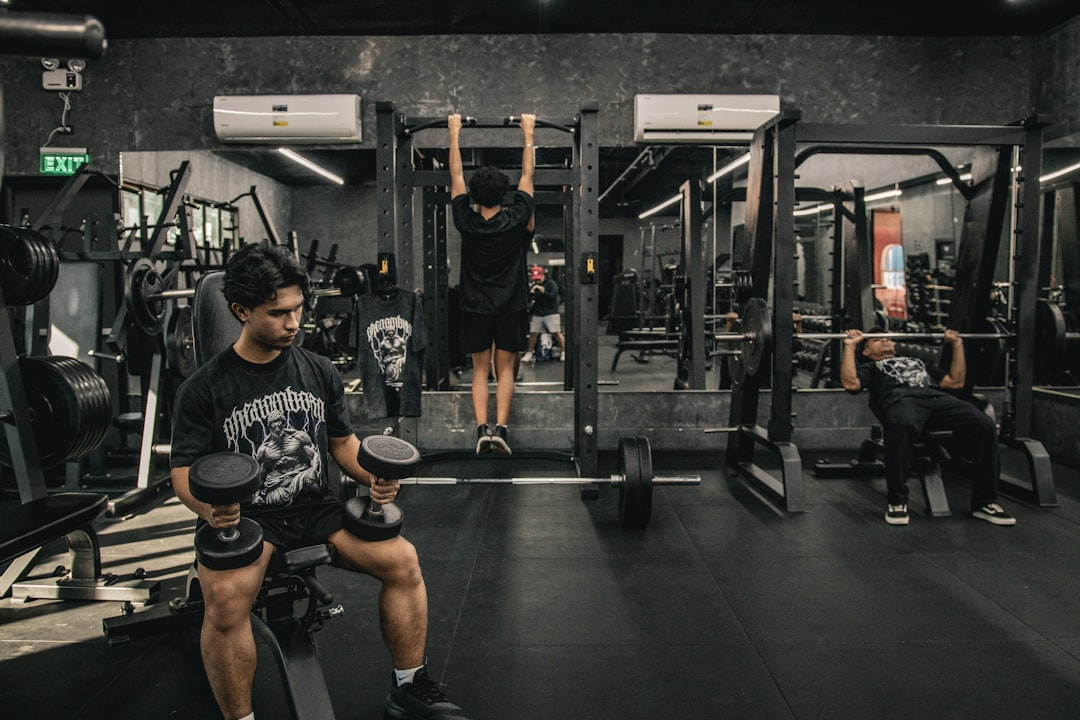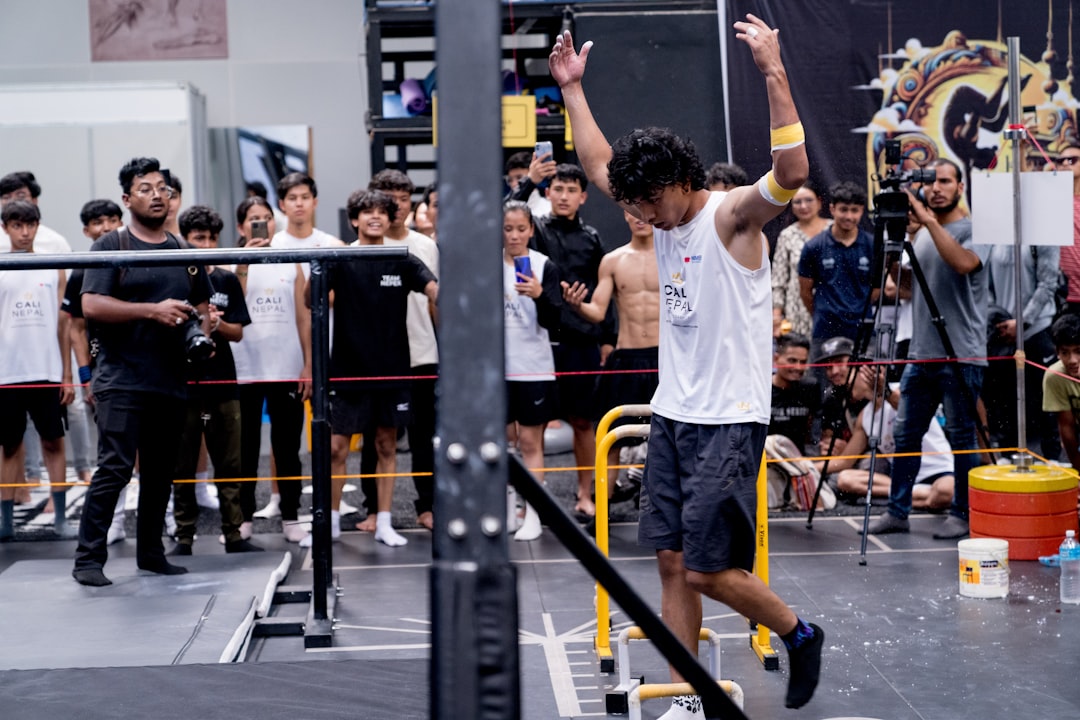Powerlifting is strong, raw, and exciting. It’s the sport of lifting the heaviest weights you can in three simple movements: squat, bench press, and deadlift. Sounds awesome, right? So, why is it not in the Olympics?
TL;DR (Too Long; Didn’t Read)
Powerlifting isn’t in the Olympics mostly because it’s not global enough and faces issues with drug testing and organization. The Olympics already includes a lifting sport—Olympic weightlifting—which is very different. Powerlifting also has many different federations, making things confusing. But there’s hope—it could one day get there!
What Is Powerlifting Anyway?
Powerlifting is a strength sport with three main lifts:
- Squat – Put a bar on your back and lower down, then stand back up.
- Bench Press – Lie on a bench, lower the bar to your chest, push it up.
- Deadlift – Pick a barbell off the ground and stand tall. No tricks, just pull!
Your best attempt in each lift is added to your total. Whoever has the highest total in their weight class wins.
Sounds pretty straightforward, right? It’s all about raw strength!

But Wait… There Is Weightlifting in the Olympics!
Yes, but that’s Olympic weightlifting, which is totally different.
Olympic lifting includes two lifts:
- Snatch – Lift the bar from the floor to overhead in one smooth motion.
- Clean and Jerk – Lift the bar to your shoulders (clean), then push it overhead (jerk).
It’s fast, explosive, and technical. Powerlifting, on the other hand, is slow, controlled, and brutally heavy.
So even though they both use barbells and strength, they’re apples and oranges in the lifting world.
So Why Isn’t Powerlifting in the Olympics?
Okay, now we get to the real question!
1. Too Many Federations
This is probably the biggest issue. Powerlifting doesn’t have one single organization that runs everything.
Instead, there are dozens of federations, and they all have different rules, equipment, and standards.
- Some allow special suits and shirts that help you lift more.
- Others only allow raw lifting (just belt and knee sleeves).
- Drug testing is strict in some, non-existent in others.
This makes it hard for the Olympics to pick one “true” version of the sport.
2. Drug Testing Drama
The Olympics are very serious about anti-doping rules. And some powerlifting federations? Not so much.
The IPF (International Powerlifting Federation) is one of the few that does strict drug testing. That’s great for Olympic hopes. But it competes with other federations that don’t test much or at all.
This makes the whole sport look inconsistent. The International Olympic Committee (IOC) doesn’t like that kind of mess.
3. Not Global Enough
Powerlifting is popular in some countries like the USA, Russia, and parts of Europe. But in many parts of the world, it’s still niche.
The IOC wants sports that are global, with wide participation across continents.
Although powerlifting is growing, especially among women and in schools, it’s not quite at that worldwide level yet.
4. They Already Have a Lifting Sport
As mentioned before, Olympic weightlifting is already part of the Games. Adding another barbell-based sport might feel repetitive to decision makers.
Even though the lifts are completely different, the IOC doesn’t like to stack too many similar sports.
Also, Olympic weightlifting has also struggled with doping issues. That doesn’t help powerlifting’s case.

What’s the Difference Between IPF and Other Federations?
The IPF is kind of like the “serious” federation trying to keep things clean. It’s aligned with the World Anti-Doping Agency (WADA). This is a big deal if you want the IOC to notice you.
IPF uses consistent judging, does drug testing, and hosts worldwide events.
But the sport is fragmented. Other big-name federations go their own way. They may allow super suits that boost lifts or skip drug testing altogether. That’s fine for fans, but not great for Olympic dreams.
Until everyone gets on the same page, it’s hard to present one unified sport to the IOC.
Wait, Isn’t Powerlifting in the Paralympics?
Yes—kind of!
There’s something called Para Powerlifting, and it’s in the Paralympic Games. But it only includes one lift: the bench press.
It’s still hardcore, and insanely impressive, but it’s a different version of the sport.
So technically, powerlifting does exist in one Olympic-style competition. Just not the full three-lift version in the regular Olympics (yet).
Do Other Strength Sports Make the Cut?
Not really. Strongman isn’t in the Olympics either. CrossFit isn’t either. Even bodybuilding is out.
The Olympics focuses on sports with:
- Clear organizations
- Strict rule enforcement
- Anti-doping compatibility
- Global participation
Powerlifting is awesome. But it needs to check more of those boxes.
Could Powerlifting Ever Make It?
Yes! There’s still a real chance.
The IPF has been working hard to make it Olympic-ready:
- It follows anti-doping rules.
- It holds world competitions.
- It has more countries joining all the time.
In fact, the IPF is already recognized by the Global Association of International Sports Federations. That’s one step closer to Olympic approval.
If more lifters and countries support the IPF, and the sport stays clean, who knows? Maybe we’ll see it in the Games someday.

But Do We Really Need the Olympics?
Here’s a fun thought: maybe powerlifting doesn’t even need the Olympics. It already has massive worldwide meets, epic records, and millions of fans.
The culture around powerlifting is strong—some would say stronger than Olympic weightlifting. It thrives in gyms, on social media, and in viral YouTube videos.
Would the Olympics help? Of course.
But even if it doesn’t get in, powerlifting is here to stay. And honestly—it’s only getting more popular by the year.
Final Thoughts
Powerlifting’s journey to the Olympics is a big lift—pun intended. It has potential, but it needs cleanup, unity, and global growth.
For now, we’ll keep cheering from the sidelines, watching massive squats, insane deadlifts, and heavy bench presses. And who knows… maybe one day, we’ll see those three big lifts on the Olympic stage.
Until then, keep lifting heavy and having fun!